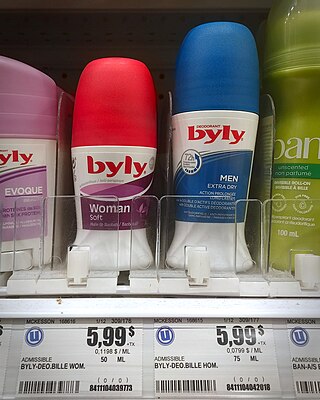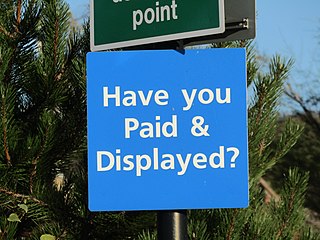
A statutory instrument (SI) is the principal form in which delegated legislation is made in Great Britain.
In the United Kingdom, the boundary commissions are non-departmental public bodies responsible for determining the boundaries of parliamentary constituencies for elections to the House of Commons. There are four boundary commissions: one each for England, Scotland, Wales and Northern Ireland.
In many states with political systems derived from the Westminster system, a consolidated fund or consolidated revenue fund is the main bank account of the government. General taxation is taxation paid into the consolidated fund, and general spending is paid out of the consolidated fund.
In public policy, a sunset provision or sunset clause is a measure within a statute, regulation or other law that provides for the law to cease to be effective after a specified date, unless further legislative action is taken to extend it. Unlike most laws that remain in force indefinitely unless they are amended or repealed, sunset provisions have a specified expiration date. Desuetude renders a law invalid after long non-use.
In the Westminster system, a money bill or supply bill is a bill that solely concerns taxation or government spending, as opposed to changes in public law.
In law, coming into force or entry into force is the process by which legislation, regulations, treaties and other legal instruments come to have legal force and effect. The term is closely related to the date of this transition. The point at which such instrument comes into effect may be set out in the instrument itself, or after the lapse of a certain period, or upon the happening of a certain event, such as a proclamation or an objective event, such as the birth, marriage, reaching a particular age or death of a certain person. On rare occasions, the effective date of a law may be backdated to a date before the enactment.
In the United Kingdom, devolved matters are the areas of public policy where the Parliament of the United Kingdom has devolved its legislative power to the national legislatures of Scotland, Wales and Northern Ireland, while reserved matters and excepted matters are the areas where the UK Parliament retains exclusive power to legislate.
Citation of United Kingdom legislation includes the systems used for legislation passed by devolved parliaments and assemblies, for secondary legislation, and for prerogative instruments. It is relatively complex both due to the different sources of legislation in the United Kingdom, and because of the different histories of the constituent countries of the United Kingdom.

The Education Act 2005 is an act of the Parliament of the United Kingdom. Introduced under the second Tony Blair government, it was enacted in order to simplify the process of school improvement, strengthening the accountability framework for schools, in particular by amending the approach used by Ofsted when inspecting schools in England. This Act repealed the provisions of the School Inspections Act 1996.
An act of the Northern Ireland Assembly is primary legislation made by the Northern Ireland Assembly. The power to create acts was conferred to the Parliament by section 5 of the Northern Ireland Act 1998 following the successful 1998 referendum on the Good Friday Agreement.

Healthcare in the United Kingdom is a devolved matter, with England, Northern Ireland, Scotland and Wales each having their own systems of publicly funded healthcare, funded by and accountable to separate governments and parliaments, together with smaller private sector and voluntary provision. As a result of each country having different policies and priorities, a variety of differences have developed between these systems since devolution.

The Interpretation Act 1978 is an act of the Parliament of the United Kingdom. The Act makes provision for the interpretation of Acts of Parliament, Measures of the General Synod of the Church of England, Measures of the Church Assembly, subordinate legislation, "deeds and other instruments and documents", Acts of the Scottish Parliament and instruments made thereunder, and Measures and Acts of the National Assembly for Wales and instruments made thereunder. The Act makes provision in relation to: the construction of certain words and phrases, words of enactment, amendment or repeal of Acts in the Session they were passed, judicial notice, commencement, statutory powers and duties, the effect of repeals, and duplicated offences.

The Concessionary Bus Travel Act 2007 is an Act of the Parliament of the United Kingdom which entitles all people resident in England who are either disabled or over the age of 60 to free travel on local buses at off-peak times anywhere within England ; previously, free travel had only been available within the recipient's local authority area.

An Act of Parliament in the United Kingdom is primary legislation passed by the UK Parliament in Westminster, London.

The Criminal Justice Act 1988 is an Act of the Parliament of the United Kingdom.

Tampon tax is a popular term used to call attention to tampons, and other feminine hygiene products, being subject to value-added tax (VAT) or sales tax, unlike the tax exemption status granted to other products considered basic necessities. Proponents of tax exemption argue that tampons, menstrual pads, menstrual cups and comparable products constitute basic, unavoidable necessities for women, and any additional taxes constitute a pink tax.

The pink tax refers to the tendency for products marketed specifically toward women to be more expensive than those marketed toward men. This phenomenon is often attributed to gender-based price discrimination, however research shows that the primary cause is women sorting into goods with higher marginal costs. The name stems from the observation that many of the affected products are pink.

In the United Kingdom, various NHS hospitals charge patients and staff for parking. In Scotland and Wales car parking fees were largely abolished in 2008. As of April 2022, NHS organisations in England may optionally charge patients, visitors or staff for parking, the temporary suspension of fees during COVID-19 having been lifted. The cost of hospital parking is a controversial topic, with opponents in England criticising the charges.

The Period Products (Scotland) Act 2021 was a Private member's bill in the Scottish Parliament which received Royal assent on 12 January 2021. It is the world's first legislation to make it mandatory for all public institutions to provide free sanitary products for menstruation including tampons and pads.

The Autism Act 2011 is an Act of the Northern Ireland Assembly. The Act makes provision about the needs of adults and children who have autistic spectrum disorders including autism and Asperger syndrome.









